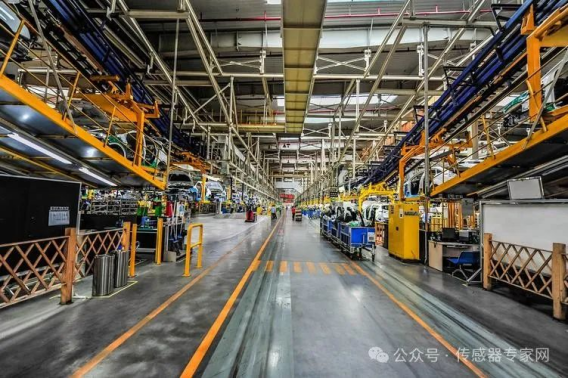In today's rapidly changing industrial landscape, the continuous advancement of technology is driving the transformation and upgrading of the manufacturing industry in unprecedented ways. In this transformation, industrial sensors play a crucial role as the core components of intelligent manufacturing. They are like "nerve endings" in the industrial field, providing valuable real-time information for intelligent manufacturing systems through precise perception and transmission of data, making the production process more efficient, accurate, and intelligent. This article will delve into the main purpose of industrial sensors and their key role in intelligent manufacturing.

The core purpose of industrial sensors
The main purpose of industrial sensors is to convert various physical quantities (such as force, heat, light, magnetism, sound, moisture, electricity, etc.) in the industrial manufacturing process into electronic signals or other forms of information that can be transmitted, processed, and stored. These sensors are like the "eyes" and "ears" of industrial systems, capable of real-time monitoring of various changes in the production site, such as temperature, pressure, displacement, vibration, etc., providing accurate data support for intelligent manufacturing systems.
1. Improving production efficiency and product quality: The data collected by sensors enables intelligent manufacturing systems to control production processes more accurately. For example, in the high-end manufacturing field, sensors that are resistant to high temperature and high pressure, as well as sensors with high precision, high stability, and resistance to vibration and impact, not only promote technological progress in intelligent manufacturing, but also significantly improve overall production capacity and product quality.
2. Realize automatic detection and control: Sensors are the primary link in industrial control to achieve automatic detection and control. Without sensors, intelligent manufacturing systems cannot obtain real-time data during the production process, and therefore cannot effectively control and manage it. The application of sensor technology makes the production process more automated and intelligent.
3. Enhancing the level of intelligence: By collecting data through sensors, big data and artificial intelligence models can be constructed to achieve intelligent prediction and optimization of the production process. This intelligent management approach not only improves production efficiency, but also reduces production costs and enhances the market competitiveness of the enterprise.
4. Promoting industrial development: Industrial sensors are not only key components of intelligent manufacturing, but also key factors driving the overall development of the industry. With the continuous advancement of sensor technology, the performance of intelligent manufacturing systems will be further improved, thereby promoting the upgrading and development of the entire industry.
The widespread application of sensors in industry
Industrial sensors are widely used in various industrial scenarios, such as energy, petroleum, chemical, metallurgical, power, machinery manufacturing, automobiles, etc. These sensors not only monitor the performance of various processes and various aspects of machine operation, but also collect data to determine normal benchmark operating levels and detect very small fluctuations in performance. This enables supervisors to have a more comprehensive understanding of the production process, identify and solve problems in a timely manner, and ensure the stability and safety of the production process.
For example, mechanical quantity sensors can detect changes and strains in machinery, such as pressure, distance, and acceleration/deceleration data; Temperature sensors can accurately measure equipment temperature, preventing unexpected and uncontrolled temperature fluctuations; Magnetic sensors are used to detect changes and interference in magnetic fields; Three axis acceleration sensors monitor the vibration of rotating equipment and measure velocity, acceleration, and displacement; Torque sensors are used in rotating equipment, and when combined with vibration sensors, they can identify and solve potential problems earlier.
summary
The importance of industrial sensors as the "nerve endings" of intelligent manufacturing is self-evident. They provide valuable real-time information for intelligent manufacturing systems through precise perception and transmission of data, making the production process more efficient, accurate, and intelligent. With the continuous advancement and increasingly widespread application of sensor technology, the performance of intelligent manufacturing systems will be further improved, thereby promoting the upgrading and development of the entire industry. In the future, we should pay more attention to the research and application of industrial sensors, provide strong support for the further development of intelligent manufacturing, and let the power of technology truly drive the precision and efficiency of industrial manufacturing.
Source: Sensor Expert Network. Reproduction of this article is to convey more information. If there is any infringement, please contact us for deletion



